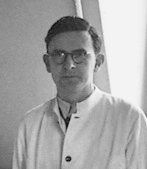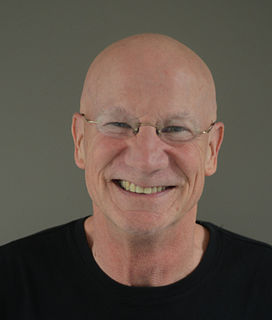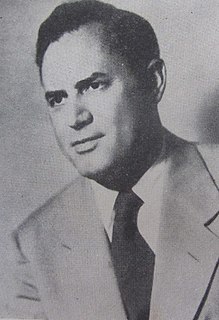A Quote by Robert Jay Lifton
The language of the totalist environment is characterized by the thought-terminating cliché. The most far-reaching and complex of human problems are compressed into brief, highly reductive, definitive-sounding phrases, easily memorized and easily expressed. These become the start and finish of any ideological analysis.
Related Quotes
It seems a miracle that young children easily learn the language of any environment into which they were born. The generative approach to grammar, pioneered by Chomsky, argues that this is only explicable if certain deep, universal features of this competence are innate characteristics of the human brain. Biologically speaking, this hypothesis of an inheritable capability to learn any language means that it must somehow be encoded in the DNA of our chromosomes. Should this hypothesis one day be verified, then lingusitics would become a branch of biology.
It would be naïve to imagine that any analysis of experience is dependent on pattern expressed in language. Any concept, whether or not it forms part of the system of grammatical categories, can be conveyed in any language. If a notion is lacking in a given series, it implies a different configuration and not a lack of expressive power.
The first step is to measure whatever can easily be measured. This is OK as far as it goes. The second step is to disregard that which can't be easily measured or to give it an arbitrary quantitative value. This is artificial and misleading. The third step is to presume that what can't be measured easily really isn't important. This is blindness. The fourth step is to say that what can't be easily measured really doesn't exist. This is suicide.
Cliche refers to words, commonplace to ideas. Cliche describes the form or the letter, commonplace the substance or spirit. To confuse them is to confuse the thought with the expression of the thought. The cliche is immediately perceivable; the commonplace very often escapes notice if decked out in original dress. There are few examples, in any literature, of new ideas expressed in original form. The most critical mind must often be content with one or the other of these pleasures, only too happy when it is not deprived of both at once, which is not too rarely the case.
The machines that are first invented to perform any particular movement are always the most complex, and succeeding artists generally discover that, with fewer wheels, with fewer principles of motion, than had originally been employed, the same effects may be more easily produced. The first systems, in the same manner, are always the most complex.
Very little comes easily to our poor, benighted species (the first creature, after all, to experiment with the novel evolutionary inventions of self-conscious philosophy and art). Even the most "obvious," "accurate," and "natural" style of thinking or drawing must be regulated by history and won by struggle. Solutions must therefore arise within a social context and record the complex interactions of mind and environment that define the possibility of human improvement.
Those who failed to oppose me, who readily agreed with me, accepted all my views, and yielded easily to my opinions, were those who did me the most injury, and were my worst enemies, because, by surrendering to me so easily, they encouraged me to go too far... I was then too powerful for any man, except myself, to injure me.
It is a governing principle of nature, that the agency which can produce most good, when perverted from its proper aim, is most productive of evil. It behooves the well-intentioned, therefore, vigorously to watch the tendency of even their most highly prized institutions, since that which was established in the interests of the right, may so easily become the agent of the wrong.






































